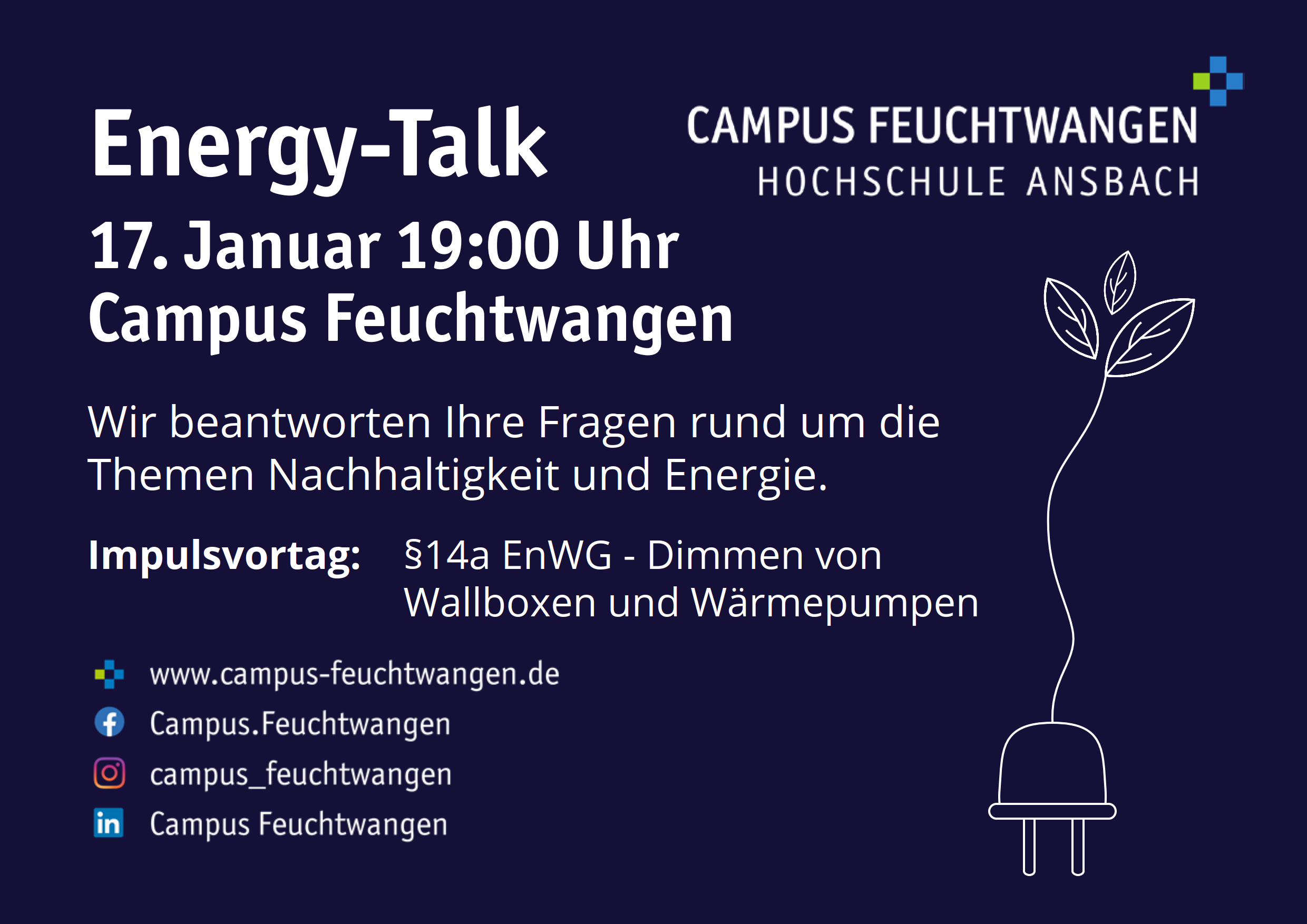Smart Grids Congress Baden-Württemberg
Presentation of the Smart Grids Roadmap BW 2.0 and other initiatives
In mid-December, Thomas Haupt M. Sc., a doctoral student at the Energy Campus Feuchtwangen at Ansbach University of Applied Sciences, attended the Smart Grids Congress Baden-Württemberg in Fellbach. He used the event as an opportunity to network within the industry and gain insights into current developments in the field of energy management systems.
The congress, which took place both on site at the Schwabenlandhalle in Fellbach and online via livestream, was organized under the title “Implementation paths of system transformation: Smart grids between federal requirements, state specifics and implementation in practice”. The agenda comprised three key topic blocks: “Where is the country going?”, “Who is doing what in the country?” and “What is progressing in the country?”.
The first block focused on the current state of development of smart grids. Experts discussed the role of smart grids for the energy transition. Topics such as digitalization, dynamic grid charges and the integration of various energy sources into smart grids were highlighted. The block provided a concise overview of the challenges and future direction of smart grids.
The second thematic block focused on the presentation of central state players and their areas of work in the field of smart grids. It became clear that Baden-Württemberg is already well positioned in this area.
The presentation of the Smart Grids Roadmap Baden-Württemberg 2.0 and other initiatives shows that there is a clear strategic direction for tackling the challenges and goals in the area of smart grids by 2030. The diversity of stakeholders enables a strong bundling of synergies, which is crucial to efficiently implement the energy transition.
The third thematic block provided insights into specific smart grid applications that have already been implemented in Baden-Württemberg and beyond. The applications presented illustrate the diversity of ongoing projects and innovations in the field of smart grids in Baden-Württemberg. From the digitalization of the energy system and the simplification of the charging process to increasing the resilience of electricity grids and the comprehensive digitalization of distribution grids, the contributions show how various aspects of the energy transition are being driven forward.
This structured approach provided a comprehensive view of the current challenges and developments in the field of smart energy systems.
Thomas Haupt gained valuable insights and was able to gather valuable information for his own work through intensive discussions with players from the energy sector. He also helped to position the Feuchtwangen Energy Campus as a relevant institution in the field of energy research.
“The event was a great opportunity for me to network across the industry and gain insights into the latest developments in the field of energy management. The discussions broadened my perspective and will help me to provide new impetus at the Feuchtwangen Energy Campus,” he said, emphasizing the importance of direct exchange.
Such industry events not only serve as a platform for expanding knowledge, but also as an opportunity to bring research and expertise at the Feuchtwangen Energy Campus into the focus of the energy transition.
Thomas Haupt’s visit to the Smart Grids Congress is therefore not only a personal success, but also a contribution to strengthening the link between academic research and practical implementation in the energy sector.

